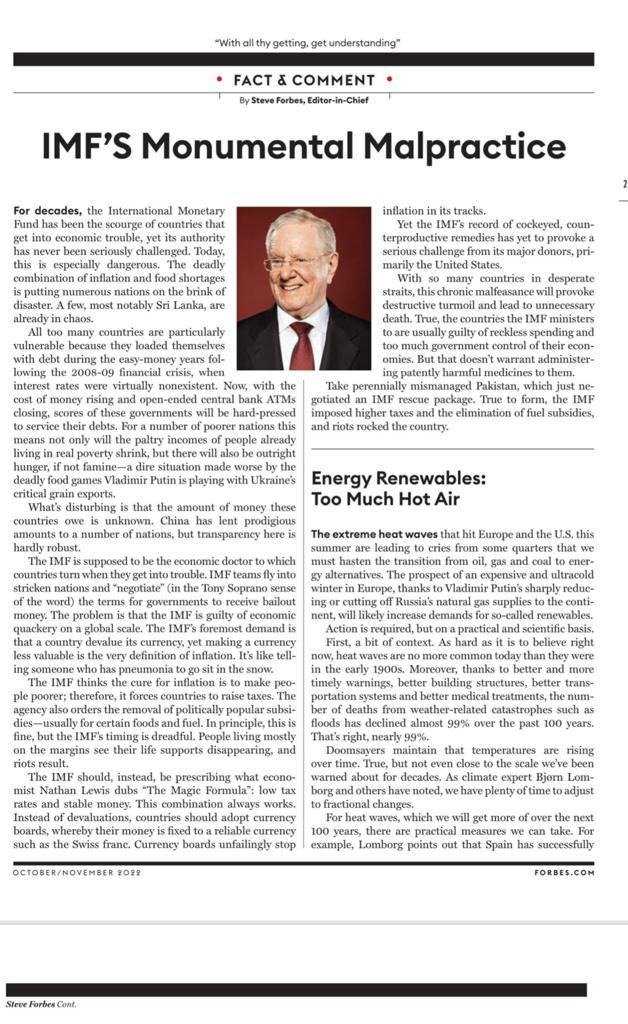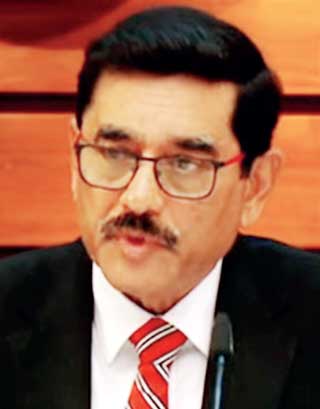For decades, the International Monetary Fund has been the scourge of countries that get into economic trouble, yet its authority has never been seriously challenged. Today, this is especially dangerous. The deadly combination of inflation and food shortages is putting numerous nations on the brink of disaster. A few, most notably Sri Lanka, are already in chaos.
All too many countries are particularly vulnerable because they loaded themselves with debt during the easy-money years following the 2008-09 financial crisis, when interest rates were virtually nonexistent. Now, with the cost of money rising and open-ended central bank ATMs closing, scores of these governments will be hard-pressed to service their debts. For a number of poorer nations this means not only will the paltry incomes of people already living in real poverty shrink, but there will also be outright hunger, if not famine—a dire situation made worse by the deadly food games Vladimir Putin is playing with Ukraine’s critical grain exports.
What’s disturbing is that the amount of money these countries owe is unknown. China has lent prodigious amounts to a number of nations, but transparency here is hardly robust.
The IMF is supposed to be the economic doctor to which countries turn when they get into trouble. IMF teams fly into stricken nations and “negotiate” (in the Tony Soprano sense of the word) the terms for governments to receive bailout money. The problem is that the IMF is guilty of economic quackery on a global scale. The IMF’s foremost demand is that a country devalue its currency, yet making a currency less valuable is the very definition of inflation. It’s like telling someone who has pneumonia to go sit in the snow.
The IMF thinks the cure for inflation is to make people poorer; therefore, it forces countries to raise taxes. The agency also orders the removal of politically popular subsidies—usually for certain foods and fuel. In principle, this is fine, but the IMF’s timing is dreadful. People living mostly on the margins see their life supports disappearing, and riots result.
The IMF should, instead, be prescribing what economist Nathan Lewis dubs “The Magic Formula”: low tax rates and stable money. This combination always works. Instead of devaluations, countries should adopt currency boards, whereby their money is fixed to a reliable currency such as the Swiss franc. Currency boards unfailingly stop inflation in its tracks.
Yet the IMF’s record of cockeyed, counterproductive remedies has yet to provoke a serious challenge from its major donors, primarily the United States.
With so many countries in desperate straits, this chronic malfeasance will provoke destructive turmoil and lead to unnecessary death. True, the countries to which the IMF ministers are usually guilty of reckless spending and too much government control of their economies. But that doesn’t warrant administering patently harmful medicines to them.
Take perennially mismanaged Pakistan, which just negotiated an IMF rescue package. True to form, the IMF imposed higher taxes and the elimination of fuel subsidies, and riots rocked the country.
Follow me on Twitter. Send me a secure tip.
Steve Forbes
Steve Forbes is Chairman and Editor-in-Chief of Forbes Media. Steve’s newest project is the podcast “What’s Ahead,” where he engages the world’s top newsmakers, politicians and pioneers... Read More
https://www.forbes.com/sites/steveforbes/2022/09/27/the-imfs-monumental-malpractice/?sh=63db72a3169f
 would enable you to enjoy an array of other services such as Member Rankings, User Groups, Own Posts & Profile, Exclusive Research, Live Chat Box etc..
would enable you to enjoy an array of other services such as Member Rankings, User Groups, Own Posts & Profile, Exclusive Research, Live Chat Box etc.. 
 Home
Home




















